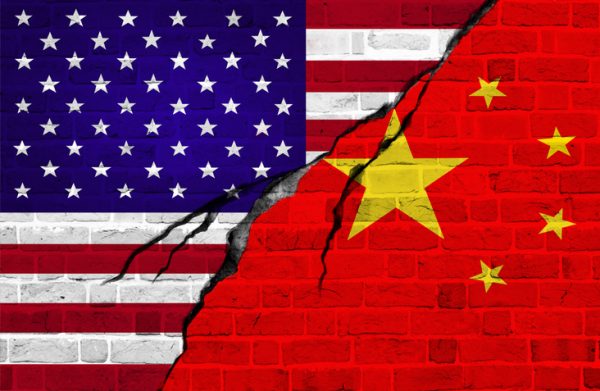
Amid the trade war between the U.S. and China and the havoc it has wreaked on international markets, one group of people in particular has been caught in the crossfire. Some Chinese and Chinese-American scientific researchers in the U.S. have found themselves subject to extraordinary and harsh treatment since Donald Trump took office, but a group of biotechnology leaders hopes to change that.
While China’s theft of intellectual property and know-how from the U.S. and other Western countries is well-known, the Trump administration’s efforts to combat it have led to the summary dismissals of some scientists from academic positions – including those from China and even American-born researchers of Chinese descent – as well as limitations on exchanges and investment in the biomedical field.
In response, more than 150 academics and commercial biotechnology executives so far have signed a letter posted online Wednesday in Nature warning that the dismissals of Chinese researchers threaten U.S. leadership in biomedical science. The letter is still open to new signatures, the list of which will be finalized next Wednesday. The letter will be published in Nature Biotechnology.
“Let us be clear: we must absolutely guard against foreign espionage and IP theft, and prosecute those who engage in it, whatever their origins,” the letter read. “At the same time, actions that more broadly limit collaboration between Chinese and American scientists and companies would be deleterious to our national interests; so too would limitations on American residents of Chinese origin receiving government research funding or being employed by the [National Institutes of Health].”
The letter was written together by Ovid Therapeutics CEO and Biotechnology Innovation Organization Chair Jeremy Levin, Acorda Therapeutics CEO Ron Cohen, Decibel Therapeutics CEO Steven Holtzman and Alnylam Pharmaceuticals CEO John Maraganore.
Since Donald Trump took office in January 2017, Chinese scientists have been targeted, particularly those involved in biomedical research at institutions like the NIH and The University of Texas MD Anderson Cancer Center. In a June article, the South China Morning Post Magazine reported that “ways of working that have long been encouraged” by research institutions are now quasi-criminalized, with the FBI stopping Chinese scientists at airports, reading private emails and visiting people’s homes to ask about their loyalty.

A Deep-dive Into Specialty Pharma
A specialty drug is a class of prescription medications used to treat complex, chronic or rare medical conditions. Although this classification was originally intended to define the treatment of rare, also termed “orphan” diseases, affecting fewer than 200,000 people in the US, more recently, specialty drugs have emerged as the cornerstone of treatment for chronic and complex diseases such as cancer, autoimmune conditions, diabetes, hepatitis C, and HIV/AIDS.
The letter went on to state that since 1999, more than 400,000 patents have been issued to inventors of Chinese descent, and about 28 percent of U.S. biomedical science publications in 2018 included an author of Chinese descent.
Other signatories included Atlas Venture partner Bruce Booth; Biogen CEO Michel Vounatsos; Broad Institute scientist and CRISPR/Cas9 gene editing pioneer Feng Zhang and many others from across industry, investment and academia.
“If we are to prevail in humanity’s common quest to conquer disease, our surest route is to include any person able to contribute, regardless of country of origin, religion, race, gender, or other identity,” read the letter. “The U.S. biomedical community stands for the principles of diversity and unity embedded in the founding principles of our country, without which our leadership indeed will soon be lost.”
Photo: Veronaa, Getty Images













